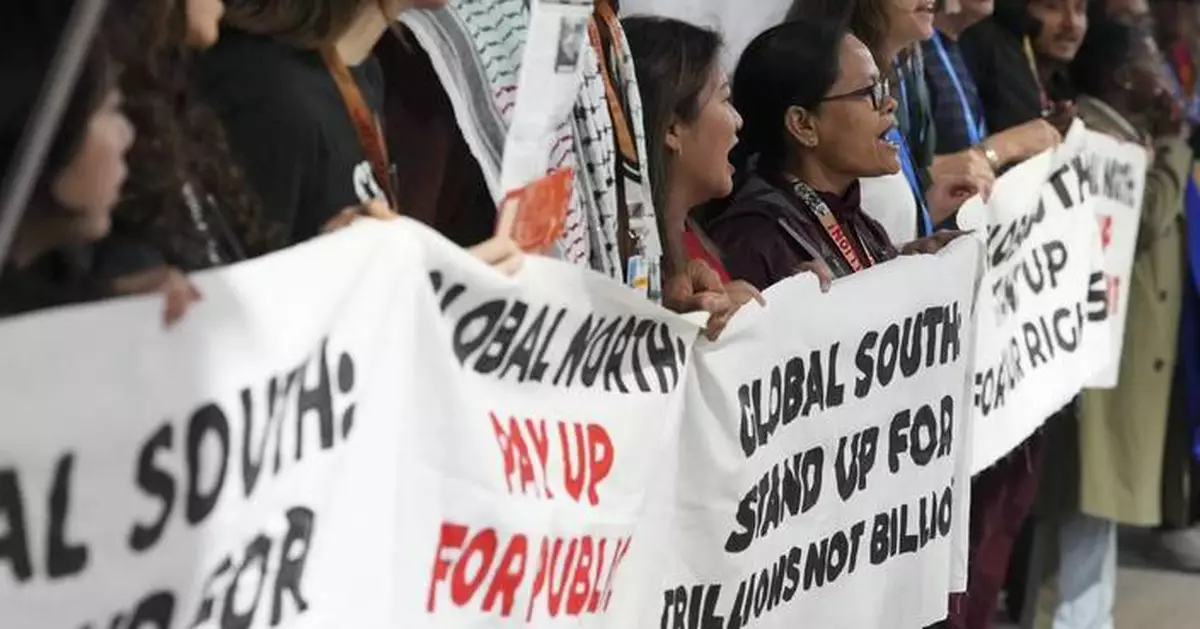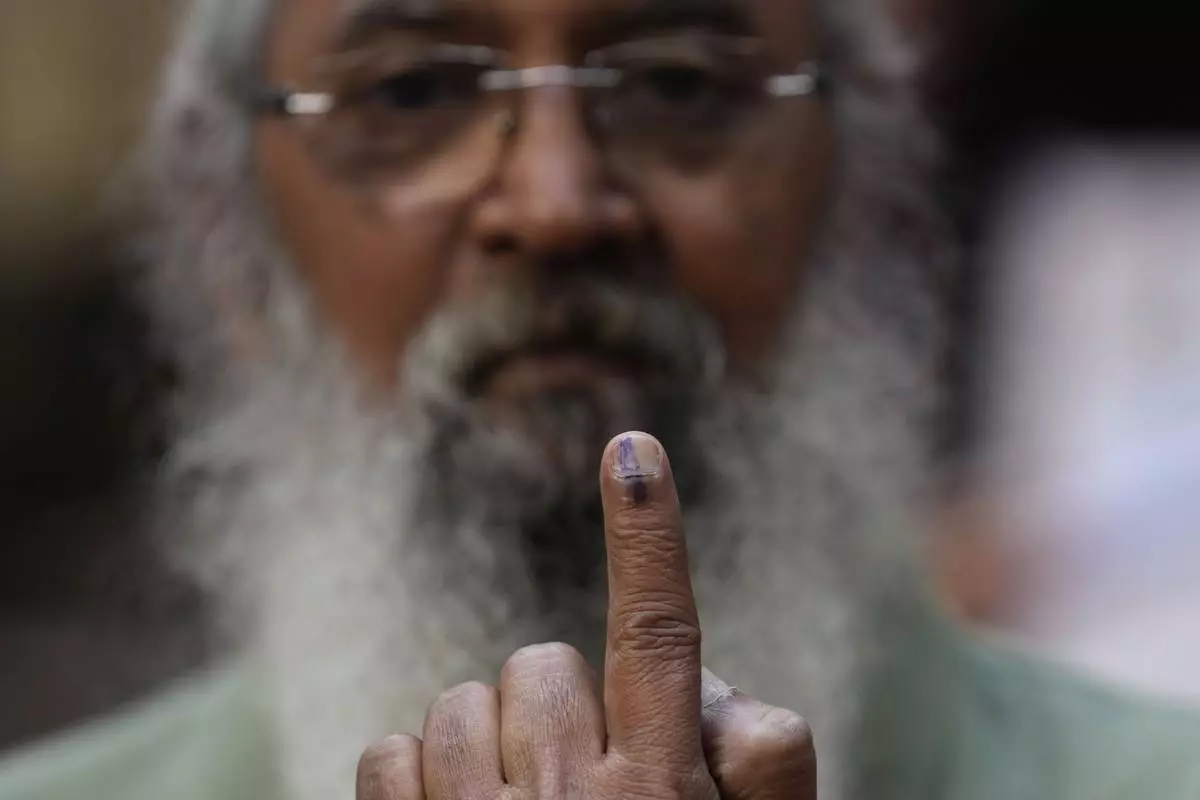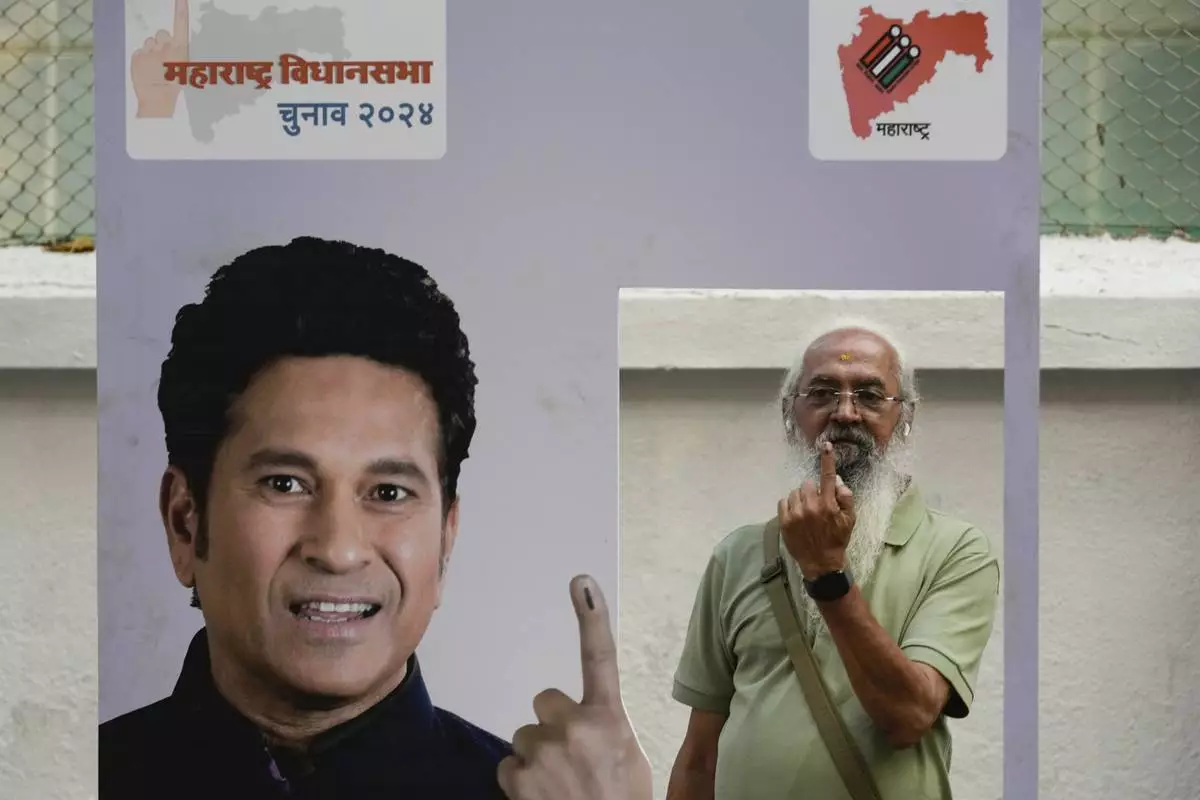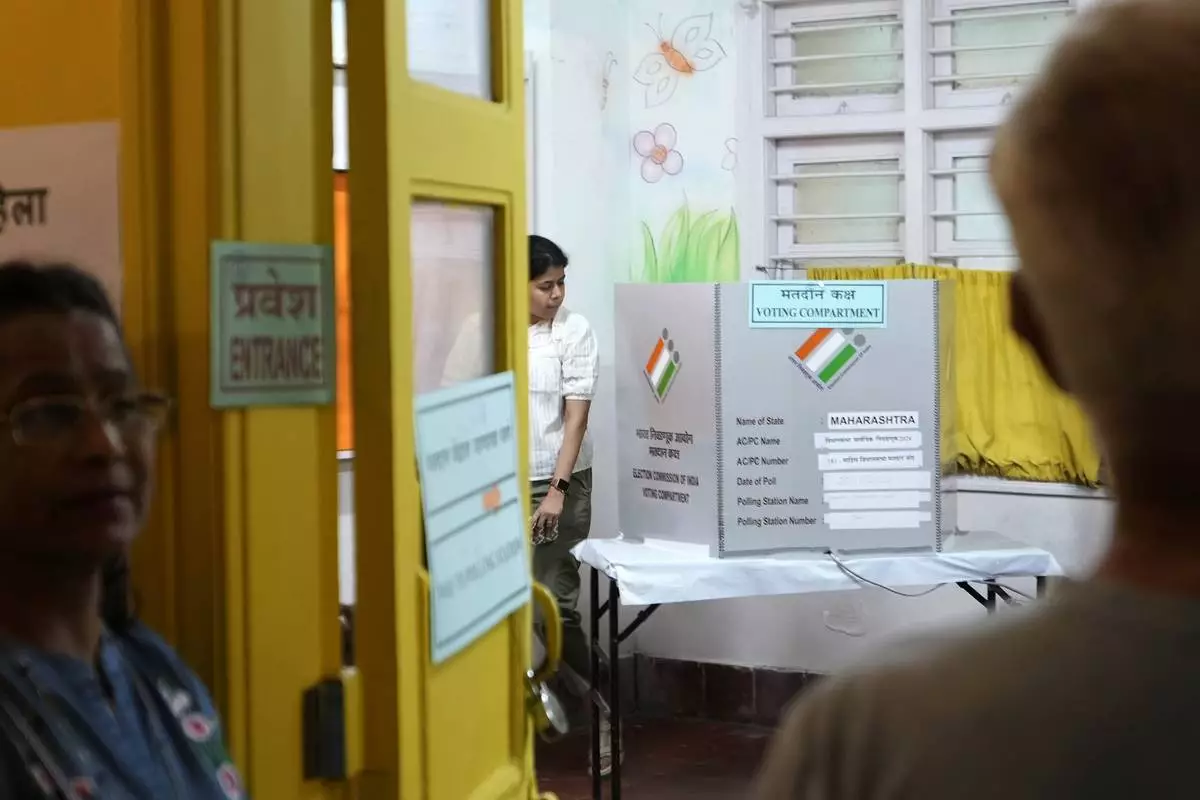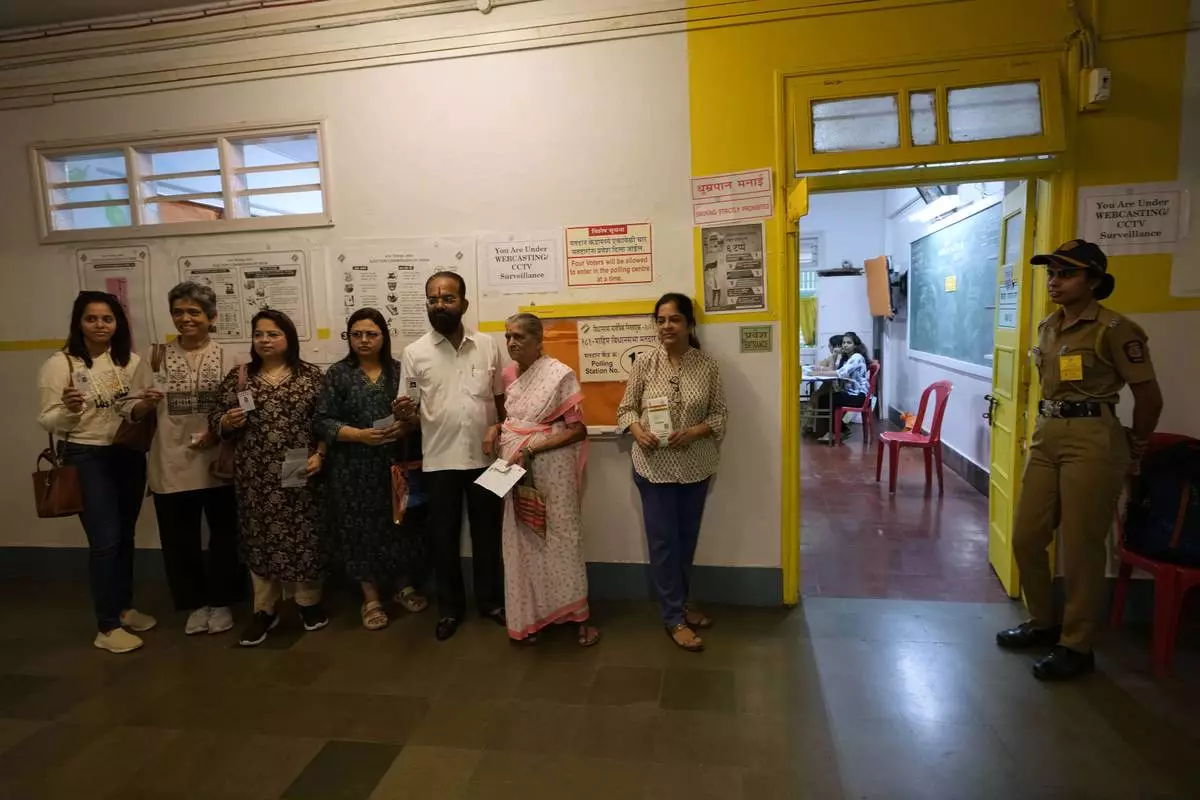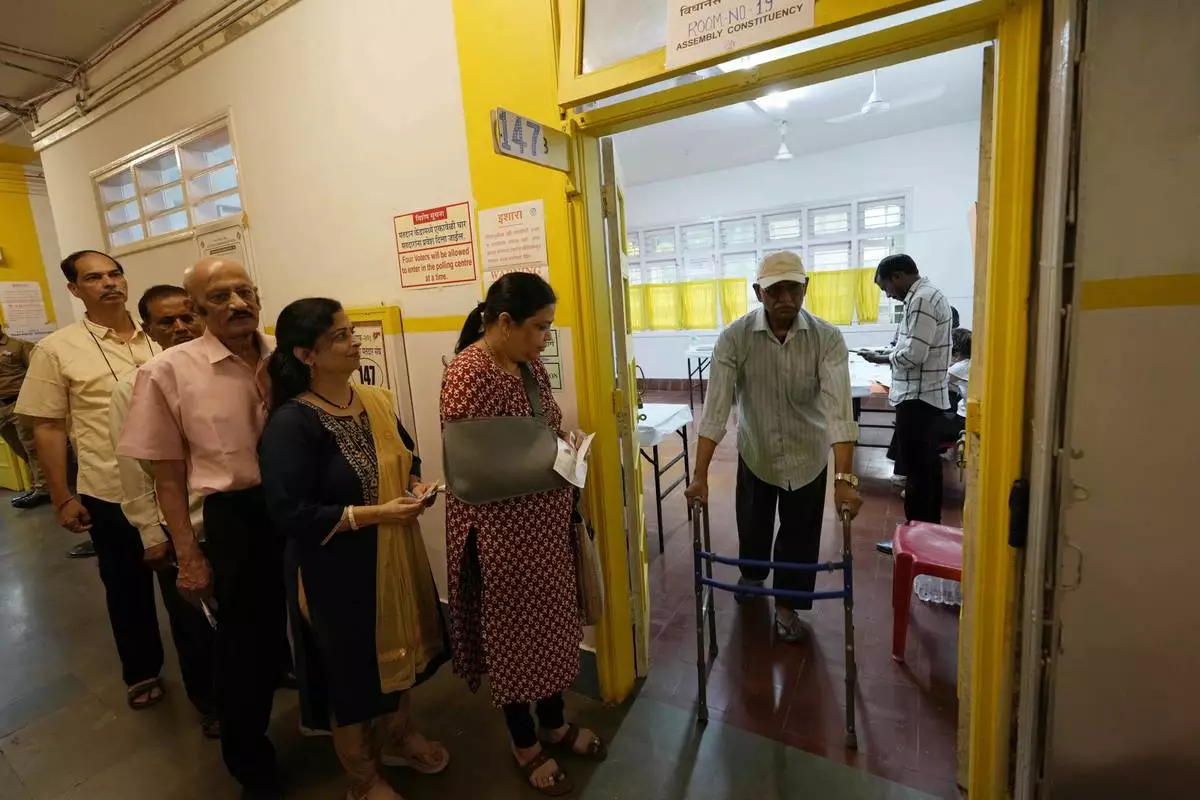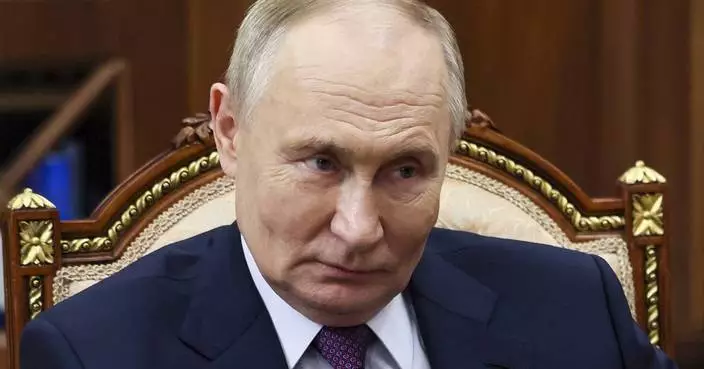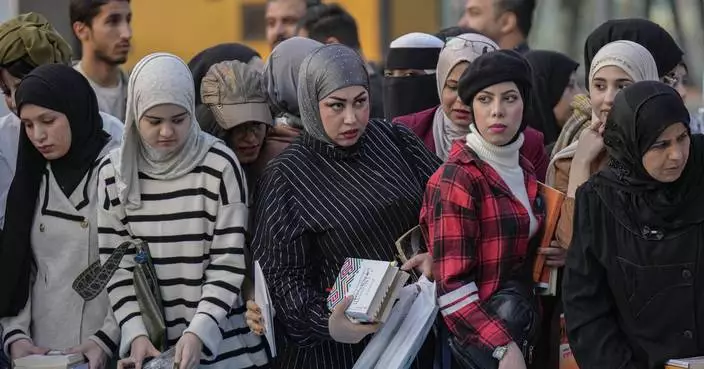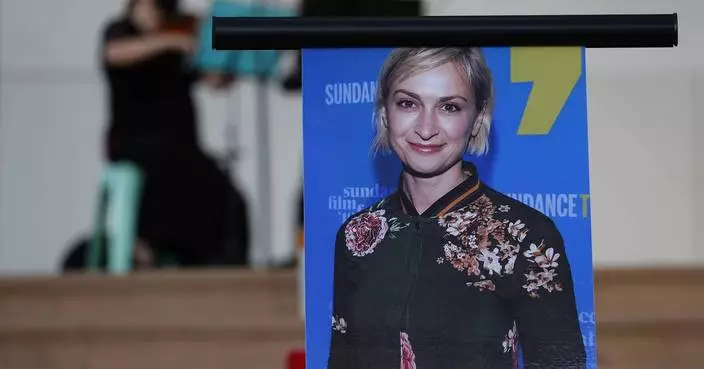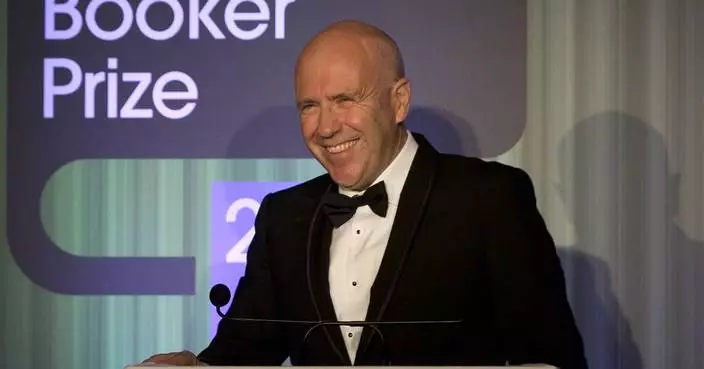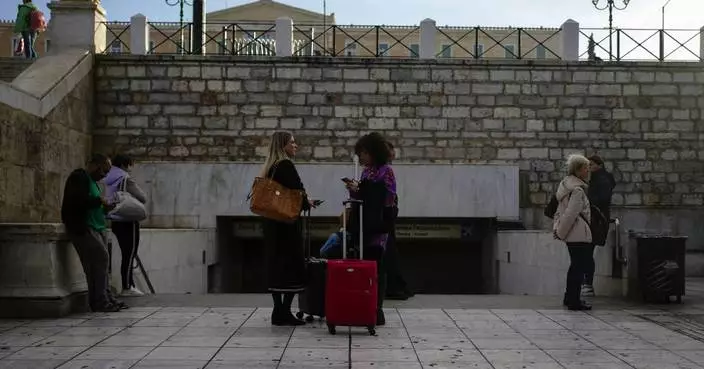BAKU, Azerbaijan (AP) — With time running down, negotiators at the United Nations annual climate talks on Wednesday returned to the puzzle of finding an agreement to bring far more money for vulnerable nations to adapt than wealthier countries have shown they're willing to pay.
Vulnerable nations are seeking $1.3 trillion to deal with damage from climate change and to adapt to that change, including building out their own clean-energy systems. Experts agree that at least $1 trillion is called for, but both figures are far more than the developed world has so far offered.
Negotiators are fighting over three big parts of the issue: How big the numbers are, how much is grants or loans, and who contributes.
At a session where negotiators relayed their progress Wednesday, Australia’s climate minister Chris Bowen, one of the ministers leading talks on the money goal, said that he's heard different proposals on how much cash should be in the pot. As well as the $1.3 trillion proposed by developing countries, nations proposed figures of $900 billion, $600 billion and $440 billion, he said.
But Diego Balanza, the chair of the Like-Minded Group negotiating bloc, said the group was hearing a figure of $200 billion in negotiating corridors. That's not enough, he said.
“Developed countries whose legal obligations it is to provide finance continue to shift their responsibility to developing countries,” Balanza said.
“We are now nearing the endgame in the negotiations and the frustration is palpable,” said Juan Pablo Hoffmaister of the Environmental Defense Fund.
Hoffmaister, who's a former negotiator for developing countries, said that while potential climate finance goals are finally out, it’s still unclear how they will be delivered — loans, grants or other means. “We need to fix this over the next 72 hours,” he said.
There appeared to be some positivity on working through other issues at the talks. South Africa's climate minister Dion George — one of two ministers leading talks on how to cut fossil fuels — said that “all parties confirmed their commitment to delivering on the Dubai consensus reached last year” when countries pledged to transition away from fossil fuels.
And New Zealand's climate minister Simon Watts was also “very encouraged” by movement on so-called Article 6, a proposal to slash emissions through, among other things, a system of carbon credits that allow nations to pollute if they offset emissions elsewhere.
But a lot was still left to work out.
Alden Meyer of the European think tank E3G summed up the state of negotiations on Wednesday by saying the word of the day at the talks is “circle… as in going around in circles."
Also Wednesday, ministers addressed the venue's main plenary hall to push for a strong outcome at the talks and slammed wars around the world for their devastating impact on communities and the environment.
“Global military spending stands at 2.5 trillion annually. For some $2.5 trillion dollars to kill each other, it’s not enough, but one trillion to save lives is unreasonable,” said Panama Climate Envoy Juan Carlos Monterrey Gomez. “Causing our own extinction is the most ridiculous thing. At least the dinosaurs had an asteroid. What is our excuse?”
Nisreen Tamimi, chairperson of the Palestinian Environment Quality Authority warned of “ecocide” after over a year of Israeli bombardment in Gaza. “Protection of the environment is actually not an ancillary issue, it is not a secondary option, it is a basic right that is related to all of us as human beings,” she said.
Ukraine's environment minister Svitlana Grynchuk also called attention to the damage of forest fires caused by Russian military actions in the country. “Nature knows no borders,” she said.
Meanwhile, half the world away in Rio, Brazil, where the Group of 20 summit wrapped up on Tuesday, the United Nations Secretary-General Antonio Guterres told the group of the world’s largest economies that “the success of COP29 is largely in your hands.”
“That goal, the financial goal, in its different layers, must meet the needs of developing countries, beginning with a significant increase in concessional public funds,” he said.
And the president of Brazil, Luiz Inácio Lula da Silva, said developed nations should consider moving their 2050 emission goals forward to 2040 or 2045.
“The G20 is responsible for 80% of greenhouse effect emissions,” he said. “Even if we are not walking the same speed, we can all take one more step.”
The Associated Press’ climate and environmental coverage receives financial support from multiple private foundations. AP is solely responsible for all content. Find AP’s standards for working with philanthropies, a list of supporters and funded coverage areas at AP.org.
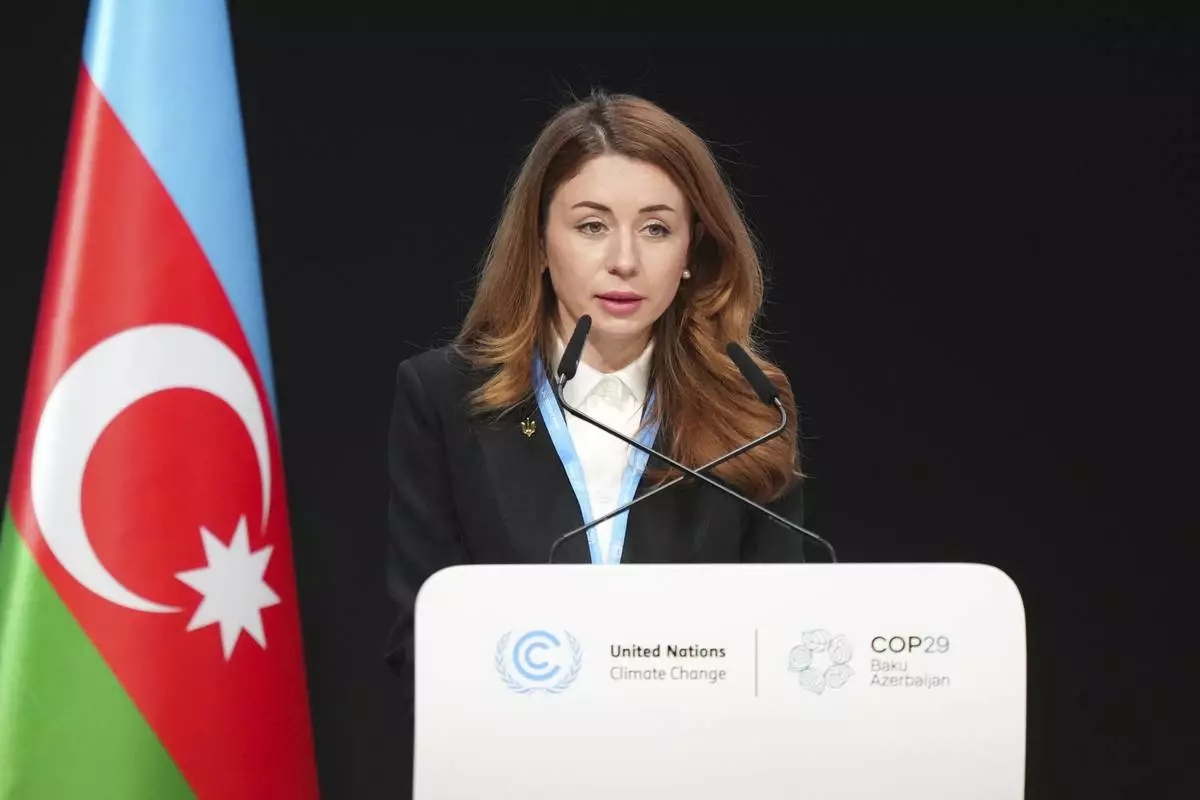
Ukraine Environment Minister Svitlana Grynchuk speaks during a plenary session at the COP29 U.N. Climate Summit, Wednesday, Nov. 20, 2024, in Baku, Azerbaijan. (AP Photo/Sergei Grits)
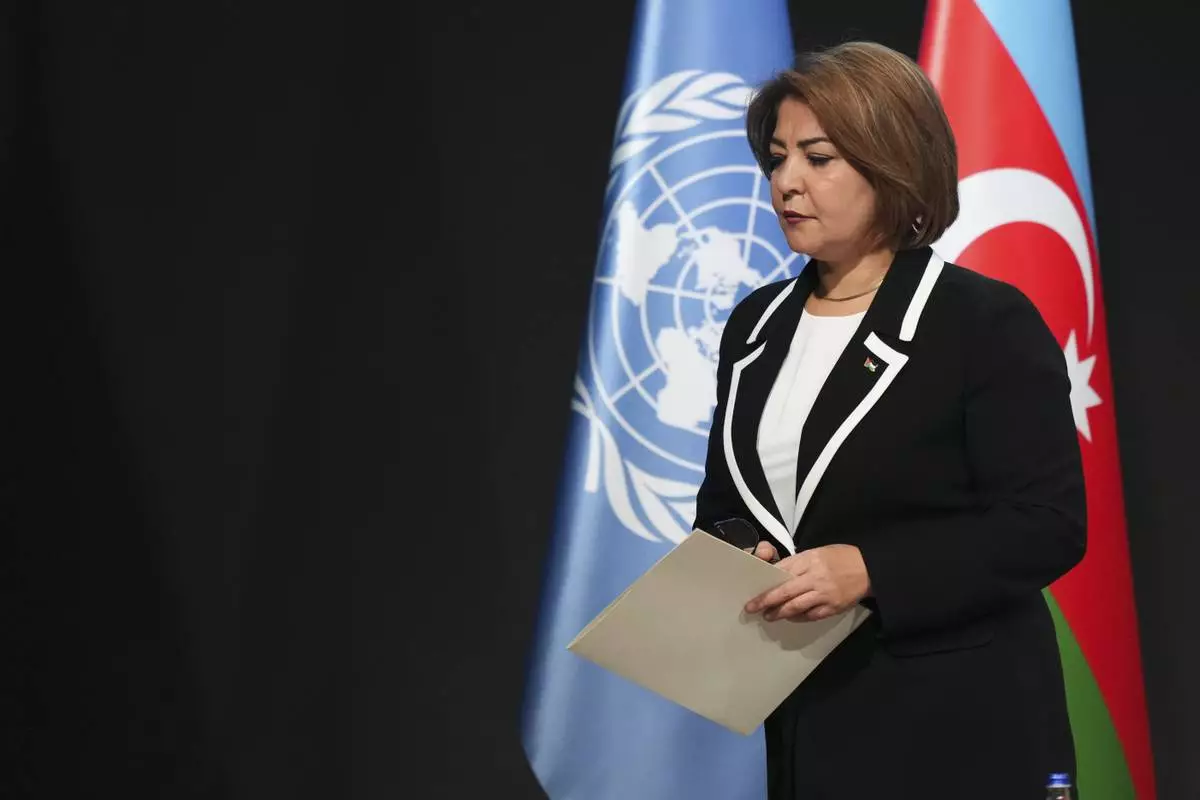
Palestinian Chairperson of Environment Nisreen Tamimi leaves after speaking during a plenary session at the COP29 U.N. Climate Summit, Wednesday, Nov. 20, 2024, in Baku, Azerbaijan. (AP Photo/Sergei Grits)
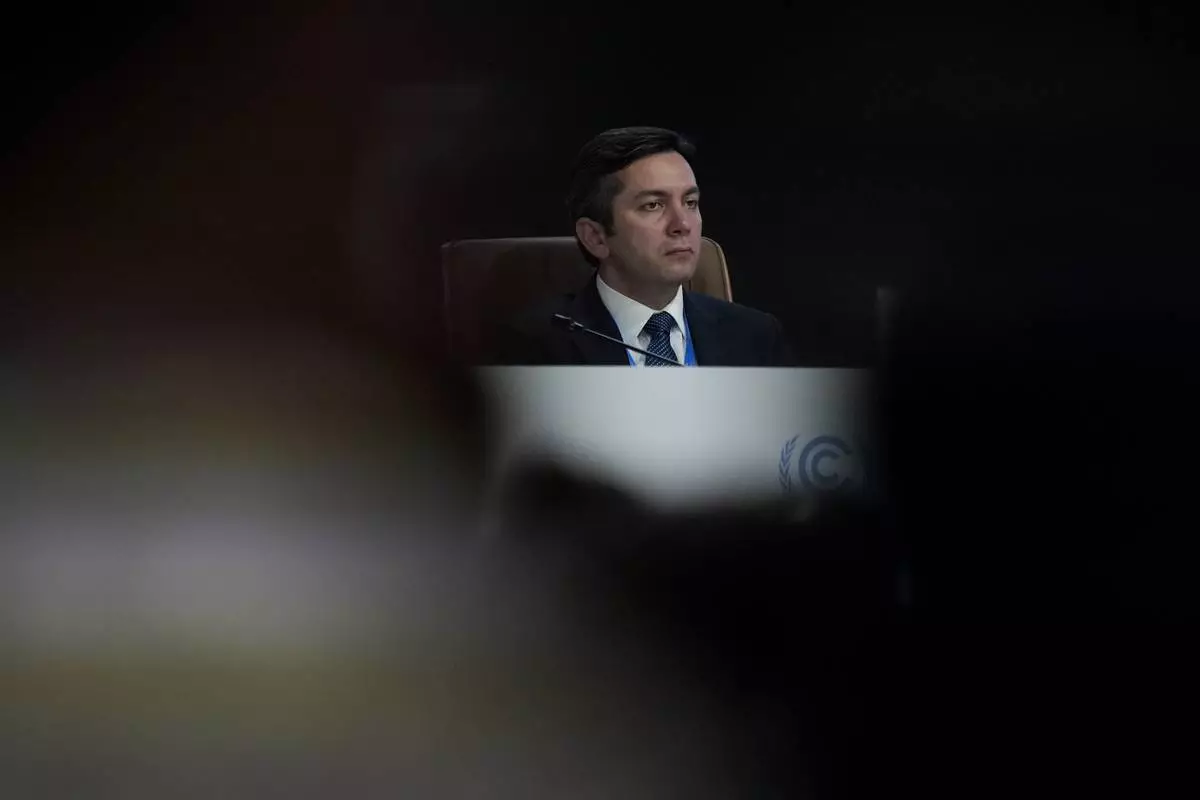
Yalchin Rafiyev, Azerbaijan's COP29 lead negotiator, attends a session at the COP29 U.N. Climate Summit, Wednesday, Nov. 20, 2024, in Baku, Azerbaijan. (AP Photo/Rafiq Maqbool)
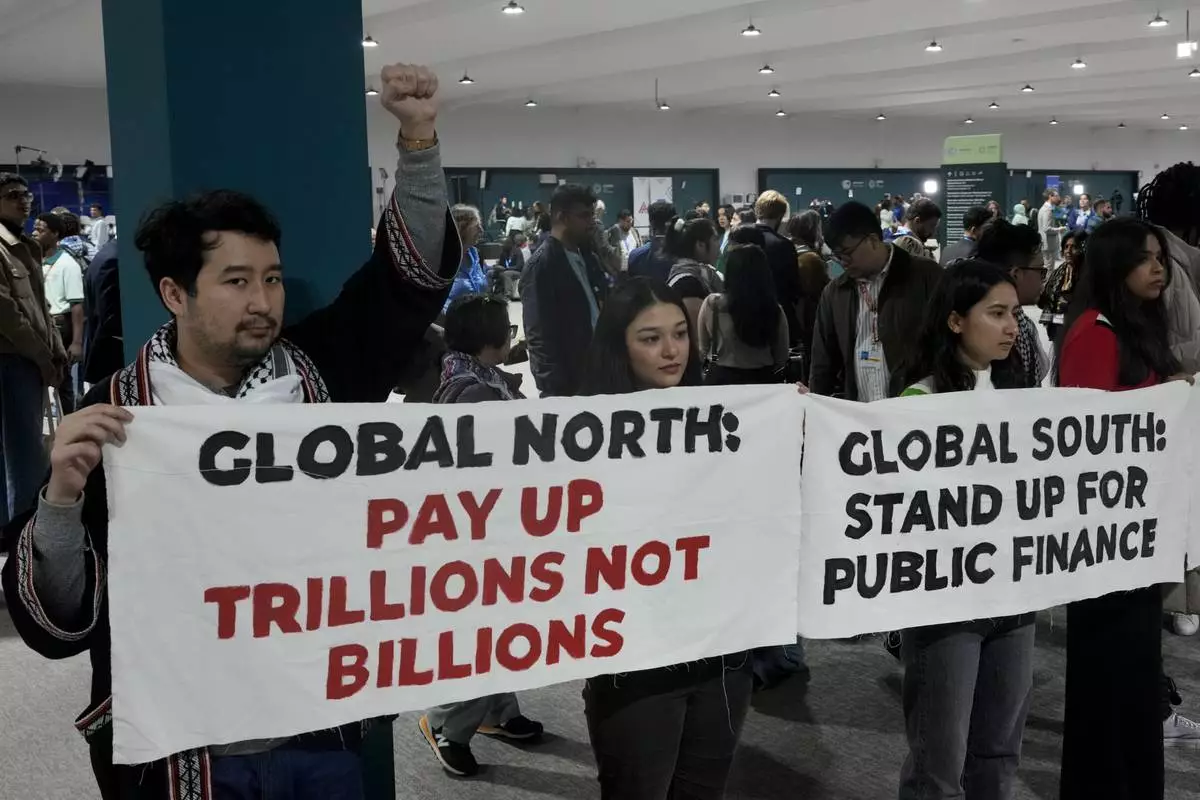
Activists demonstrate for climate finance at the COP29 U.N. Climate Summit, Wednesday, Nov. 20, 2024, in Baku, Azerbaijan. (AP Photo/Rafiq Maqbool)
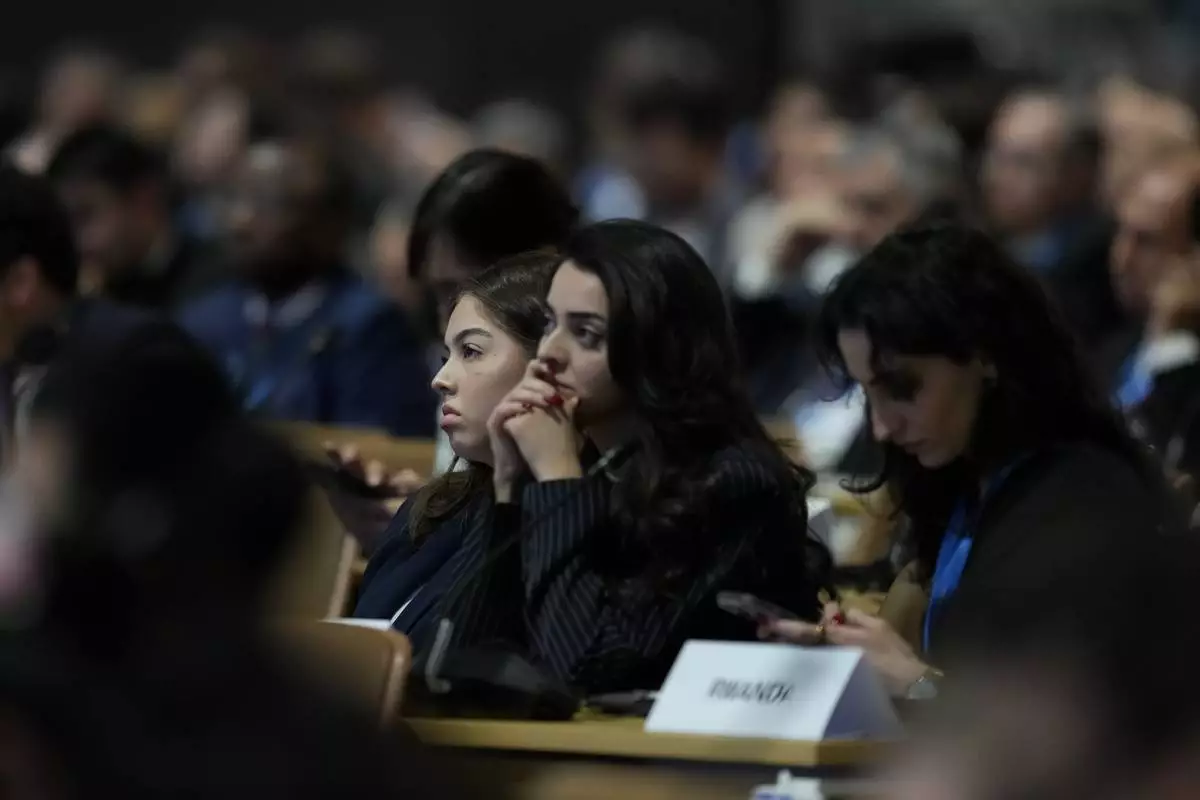
Attendees listen during a session on urbanization at the COP29 U.N. Climate Summit, Wednesday, Nov. 20, 2024, in Baku, Azerbaijan. (AP Photo/Rafiq Maqbool)
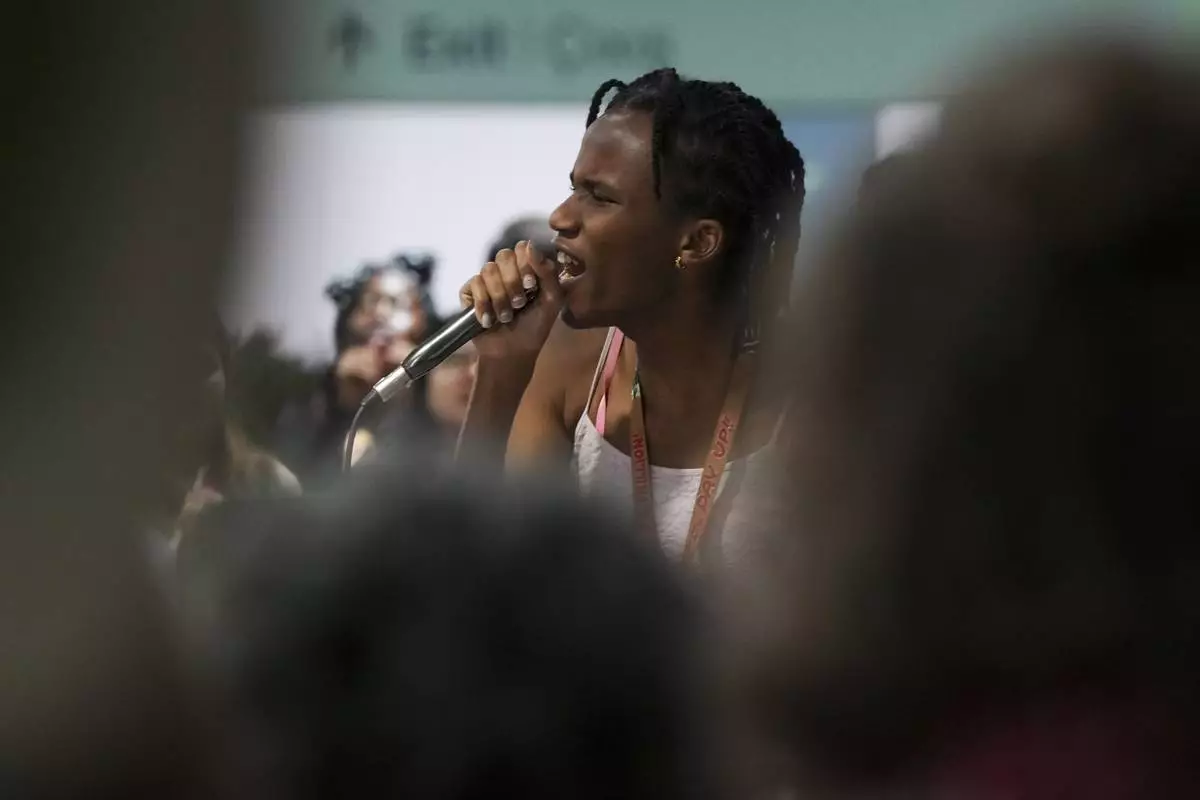
Activist Erica Njuguna speaks during a demonstration on climate finance at the COP29 U.N. Climate Summit, Wednesday, Nov. 20, 2024, in Baku, Azerbaijan. (AP Photo/Peter Dejong)
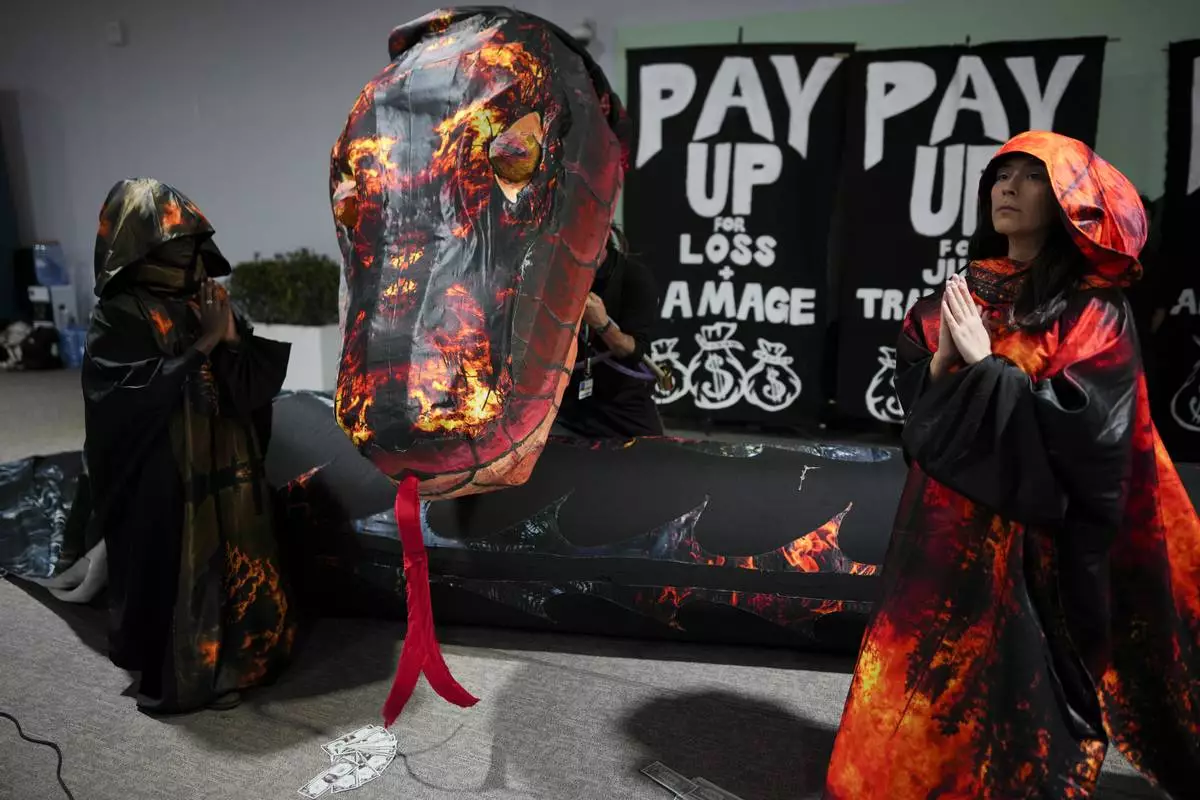
Activists participate in a demonstration for climate finance at the COP29 U.N. Climate Summit, Wednesday, Nov. 20, 2024, in Baku, Azerbaijan. (AP Photo/Peter Dejong)
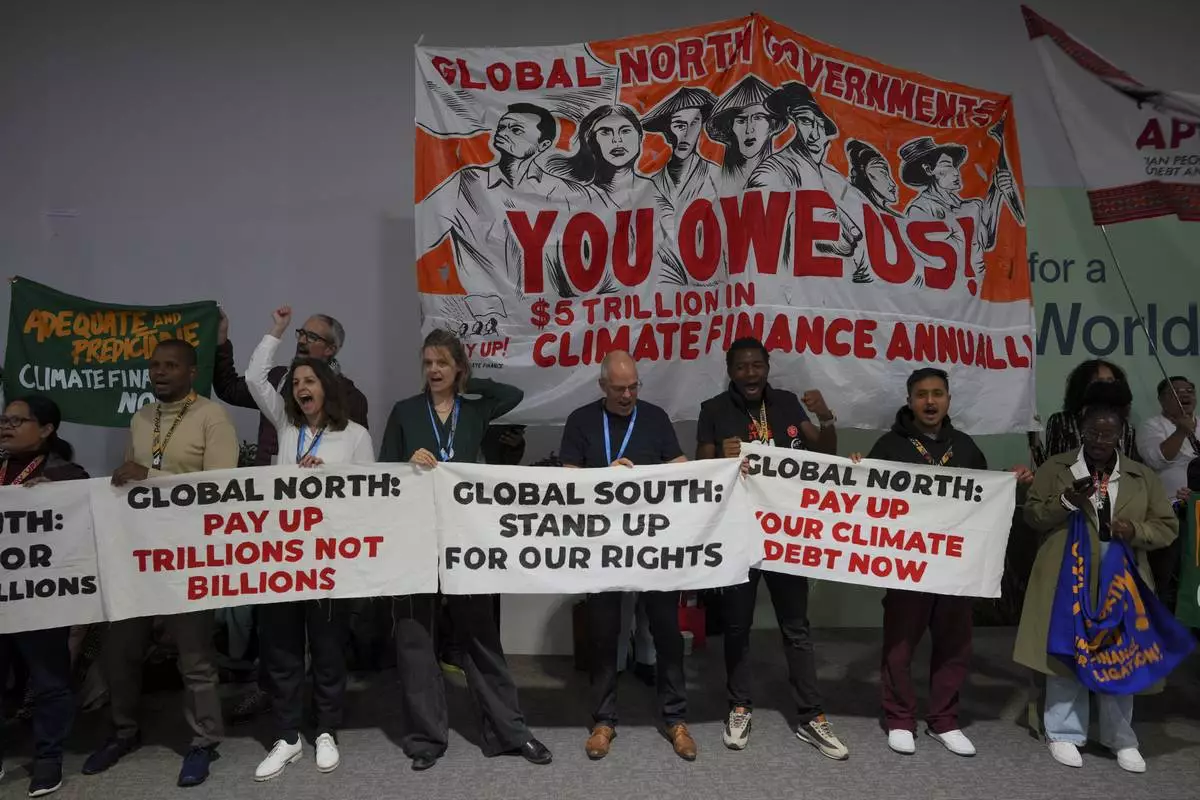
Activists participate in a demonstration for climate finance at the COP29 U.N. Climate Summit, Wednesday, Nov. 20, 2024, in Baku, Azerbaijan. (AP Photo/Peter Dejong)
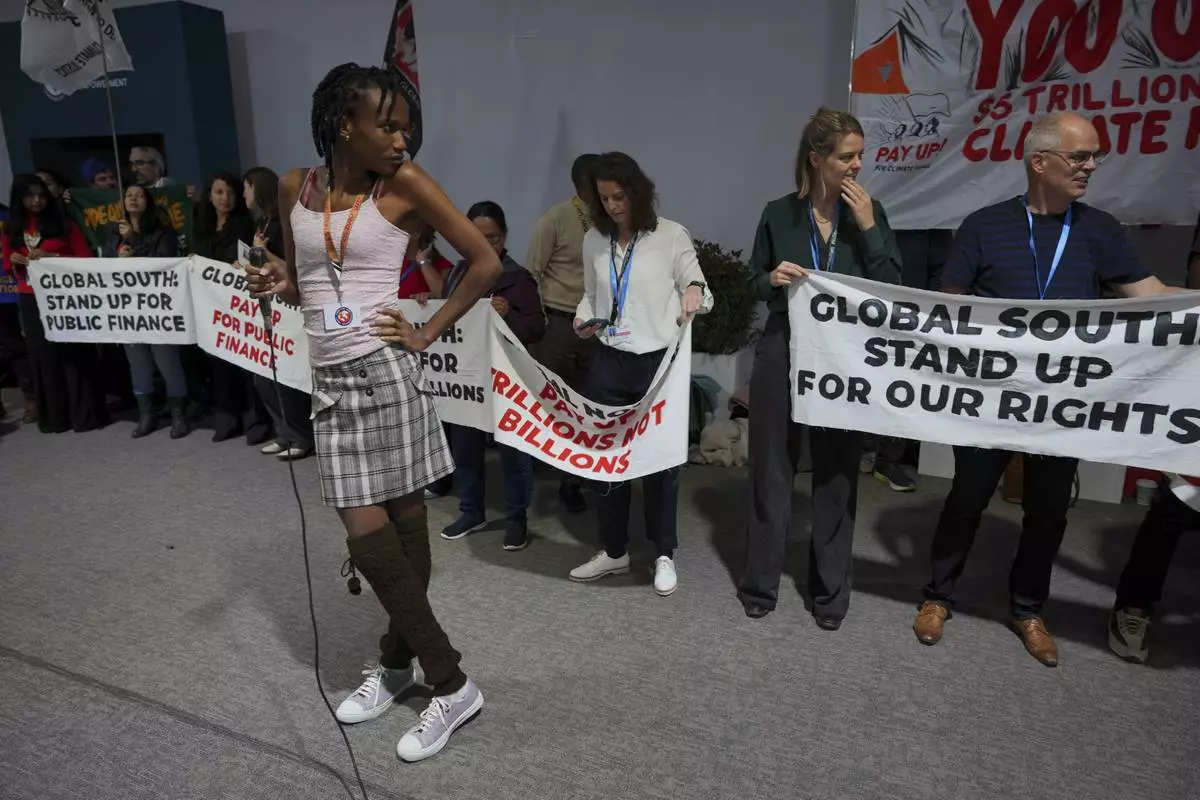
Activist Erica Njuguna leads a demonstration with signs reading "Global South: stand up for public finance" at the COP29 U.N. Climate Summit, Wednesday, Nov. 20, 2024, in Baku, Azerbaijan. (AP Photo/Peter Dejong)
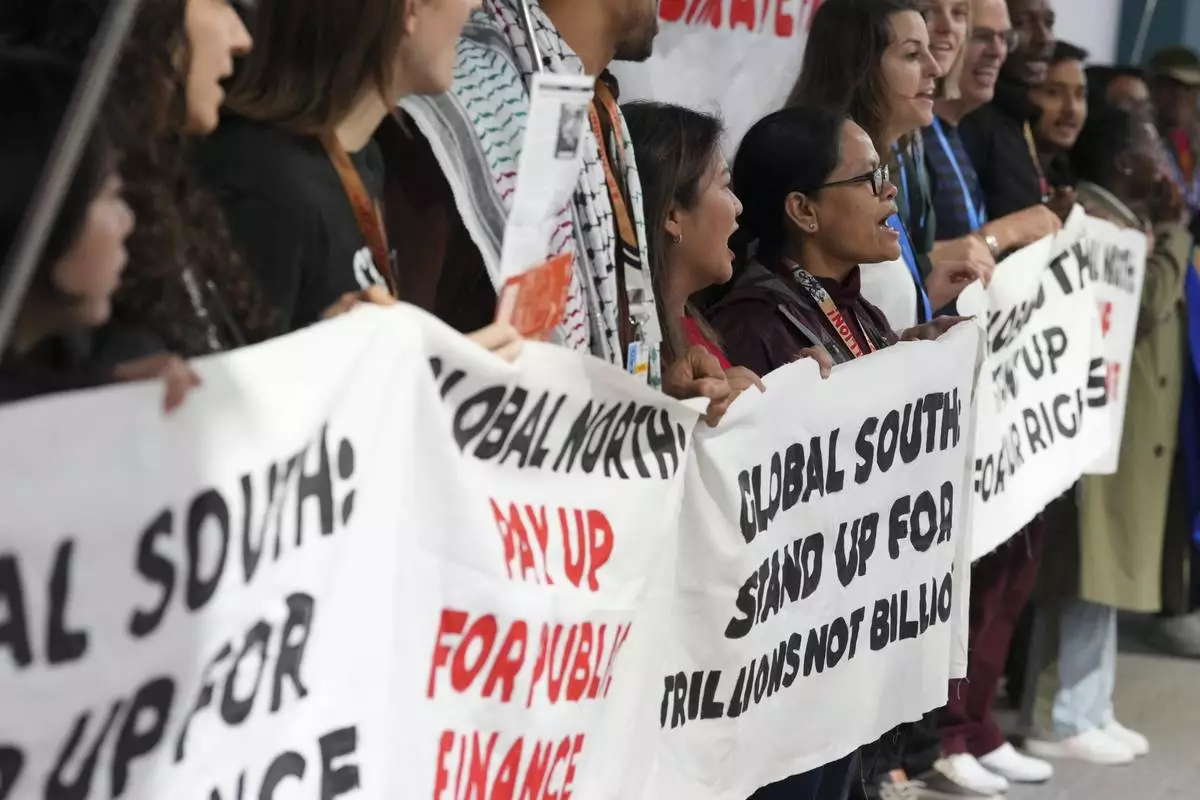
Activists participate in a demonstration for climate finance at the COP29 U.N. Climate Summit, Wednesday, Nov. 20, 2024, in Baku, Azerbaijan. (AP Photo/Peter Dejong)


